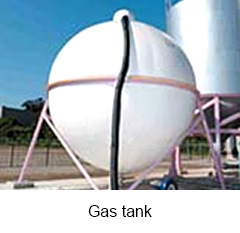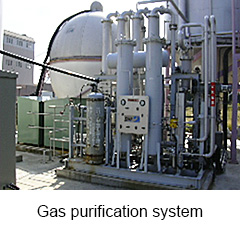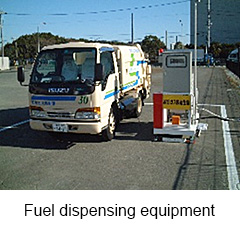Energy recovery
Energy is obtained from natural resources, like petroleum, coal, and natural gas. Unlike technologies applied to convert valuable resources into energy, energy recovery technologies extract valuable resources from unnecessary by-products generated during product processes, like wastewater and waste. It also incorporates the technologies required to convert these resources to energy.
Energy recovery technology turns a negative to a positive.
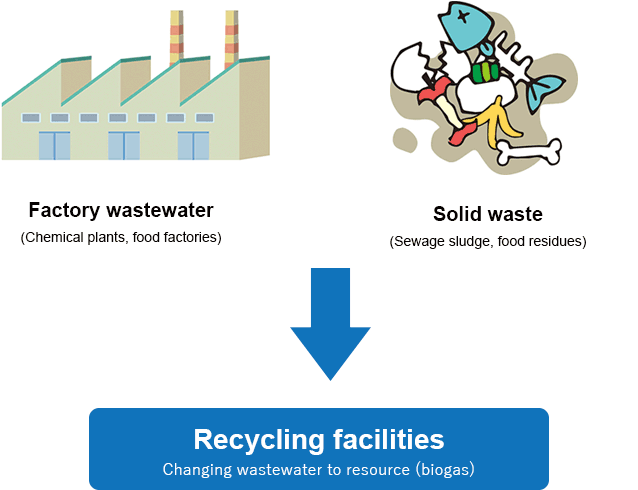
For industrial wastewater

Since industrial water features low organic concentrations, the technology we use maintains sludge (bacteria) in granular form to achieve high processing speeds, then recovers energy from the wastewater using a small tank.
For solid industrial waste (sludge, raw refuse)

We offer advanced technologies and know-how on tank agitation, inorganic solid removal, and materials handling for processing sludge-like organic substances.
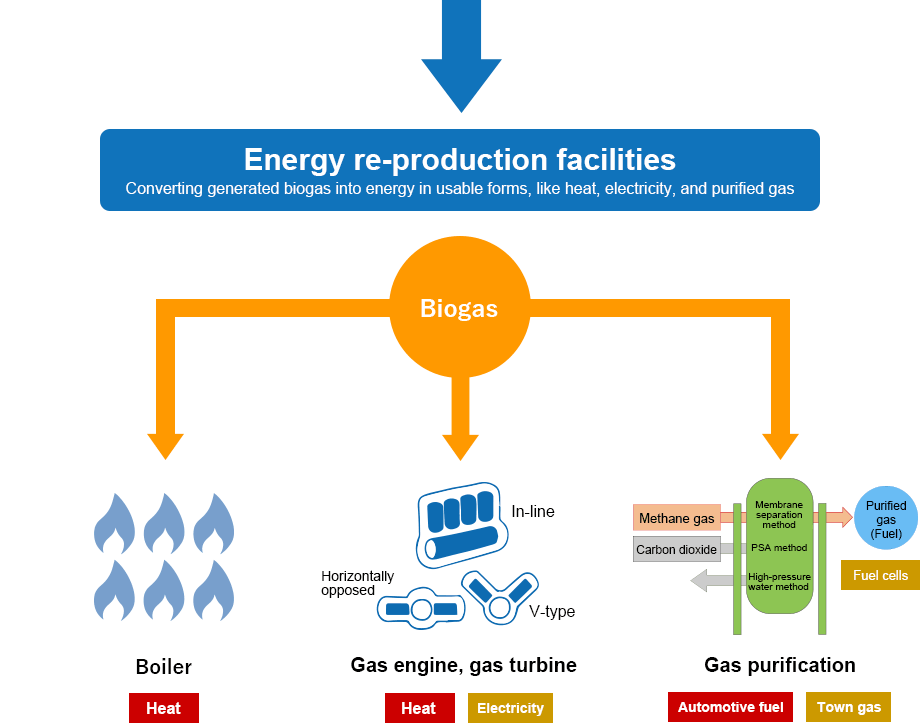
Subsidy programs for energy recovery (JAPAN)
Subsidy for Renewable Energy Service Supporting Businesses, Sustainable Open Innovation Initiatives (applicable only in Japan)

Gas-using facilities are also eligible for subsidies. (JAPAN)
Biomass heat utilizing equipment and power generators are eligible for subsidies in certain cases.
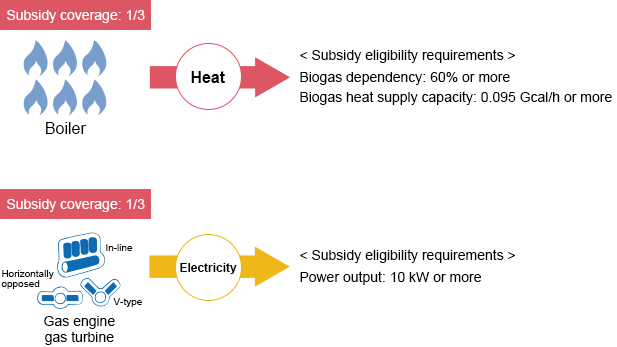
The electricity generated can be sold using FIT.
For high power output, any surplus electricity can be sold using FIT. This means electricity left over after use by the factory doesn’t go to waste. (Following values and conditions are applicable only in Japan.)
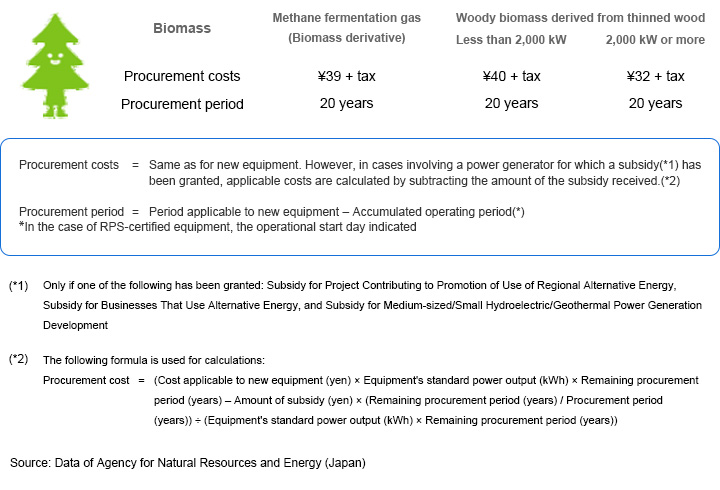
Purifying Gas and Conversion to Fuel
From fiscal 2001 to 2006, we carried out a joint verification experiment with Yokosuka City to extract biogas from the raw refuse found in burnable garbage. We used this as automotive fuel as part of an initiative to reduce and recycle burnable garbage volumes as a resource.
Commercializing gas purification systems based on gas separation membranes
During our study, we used gas separation membranes to condense biogas and increase methane concentrations from 60% to 98% and above. The resulting fuel was used to operate automobiles. SHI-EV can provide total plant design, including water treatment systems, waste processing equipment, and cutting-edge gas-utilizing facilities.

